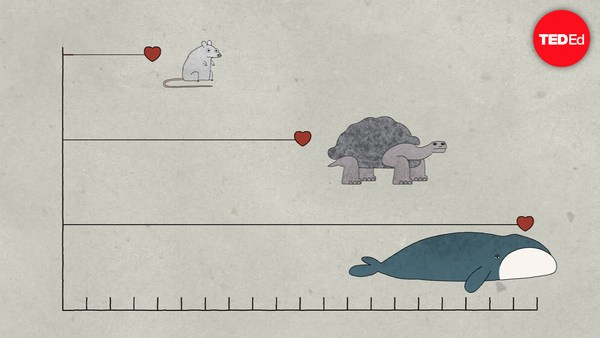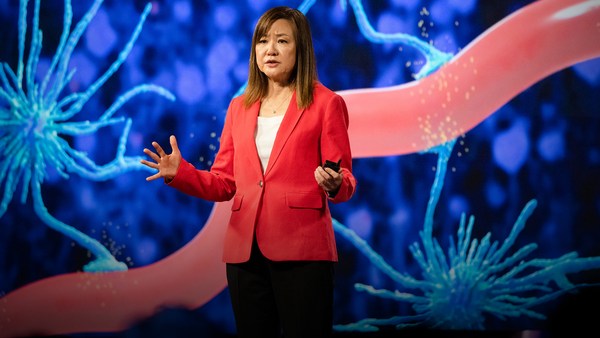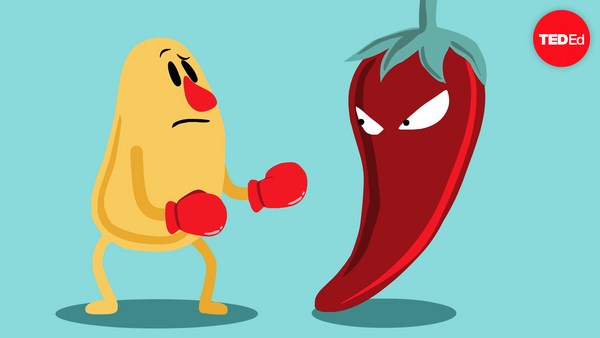I'm here to tell you that what we sense, meaning what we see, smell, hear, taste and touch, can impact how long we live. Now this may seem extraordinary, but it really isn't.
Let's say that you wake up one morning and are trying to decide whether to go to an amusement park. One of the very first things you might do is to step outside and check the weather. When you do, you see that the sky is blue, that the sun is out. You hear that the birds are chirping. You feel how warm it is on your skin. Based on all of this information, you decide it is a perfect day for going to the park. You have used your senses to impact your decision.
Now gathering this information does more than simply impact your behavior. It also can affect your emotions as well as how your body physically responds.
To demonstrate, let's say you've arrived at that amusement park, and one of the very first things that you see is a roller coaster. You see the speed with which it moves. You see the twists and turns it takes. You see the terrified look on the riders' faces. You hear their screams. Even right here, right now, this sensory event may be causing you to feel anxious or even excited, feelings that are associated with butterflies in your stomach, a racing heartbeat, even sweating palms. Your senses have caused your body to change.
This is an example of how a very short sensory perceptive event can impact you. What do you imagine a much longer sensory event might do to you? This is the question that I am interested in addressing.
And what scientists like me have discovered is that prolonged sensory events can impact the lifespan of an animal. This has been shown with worms, flies, mice. When you expose them to pheromones, it impacts how long they live.
Now at this point, you might be asking yourself, um, what does a worm, a fly or a mouse have to do with me? I would argue more than you realize. The genes or genetic material that you find within a worm or within a fly, that is approximately 60 to 75 percent similar to our own. This increases to 85 percent if we compare ourselves to a mouse. Furthermore, the fact that three very different animals all respond in terms of changing their lifespan when exposed to a specific environmental cue, this suggests that those underlying biological processes that drive those changes are similar. Therefore, there is every reason to believe that environmental cues impact our own very human aging process.
In order to study environmental cues and how they impact lifespan, our lab has decided to focus on the nervous system. Now why the nervous system? Well, we can think of the nervous system as a communication hub. It's responsible for gathering that sensory information, for processing it and then for causing those bodily changes that occur.
Furthermore, to do this research, we need to control the environment that an animal is in for its entire life. This is something that would be pretty difficult at best, and unethical at worst to do using humans. I therefore use this little guy, Drosophila melanogaster, also known as the fruit fly or the pest that came home on your bananas from the grocery store, in order to understand the things that we share in common that impact lifespan.
Now fruit flies are amazing for this type of research. They live a short amount of time. They only live two or three months. They have a brain and a central nervous system. And we can easily activate or inhibit specific neuron cells or even the activities of specific molecules in order to see how these changes impact how long the animal lives. Now I am the first to admit that my belief of how great it is to work with fruit flies is biased.
(Laughter)
But that's because I'm a fly girl.
(Laughter)
So our lab has studied how very many different environmental cues have impacted the lifespan of this animal. I'm going to highlight one in particular, and that is death perception. Yes, I said death.
So why are we interested in whether a fly can recognize other dead flies? We're interested in this so that we can develop therapies for people who find themselves developing negative health consequences as a result of stressful situations surrounding death. If you think about this, this could impact soldiers and first responders.
You're thinking, "What? A fly can actually recognize another dead fly?" The answer is yes. If I take a vial of flies and I put dead in there, they send out a signal to other flies to stay away. We can measure this. You know those flies in the vial with the dead? They lose weight and they die sooner.
Now that we know that there's all these effects, we wanted to make sure this was real. So, you know, the first thing that you might imagine is that, well, those flies with the dead, they're getting an infection. They're getting sick, and that's what's causing them to die. But we know this isn't the case, because if I do the experiment under sterile or infection-free conditions, the live flies, they still die when they're with the dead.
But if you take that vial of flies and you put them in complete darkness for 24 hours, all the time, they never see the light, those flies live just as long as flies that never had dead in their vial to begin with. This indicates that it is the sight of the dead that is causing all those biological changes, which impacts their lifespan.
So now that we know that flies can sense other dead, we turned our attention toward trying to understand a little bit more about those biological processes that are happening. What are the changes? And what we discovered was that molecules found in our own bodies, including serotonin and insulin, had a role. Furthermore, we discovered parts of the fly brain that played a role in how long they live when exposed to dead that have similarities with regions of our own brains.
This is what we know about just one type of environmental cue. There are many different environmental cues that impact the lifespan of animals. These include the temperature that the animal is kept in. These include the smell of food, the wavelength of light they are exposed to, even the perception of pain. In order for us to develop therapies that promote healthy aging, we must understand the basic biology of all of these cues, because after all, we don't live in a world where we receive one cue at a time.
So what does this all mean? I would love nothing more than to be able to tell you that you should expose yourself to this environmental cue, you should avoid that one in order to live your longest, healthiest life. But I simply can't do that yet. We're just not there. But we're pushing hard towards this type of understanding, and we're going to do it with these little guys. After all, six Nobel Prizes have been won based on work with Drosophila that impacts the biology and helps us all, including worms, flies, mice, and yes, humans.
And on that note, I'd like to leave you with a happy perceptive experience
(Laughter)
in the hopes that this positively impacts your life.
Thank you.
(Applause)



